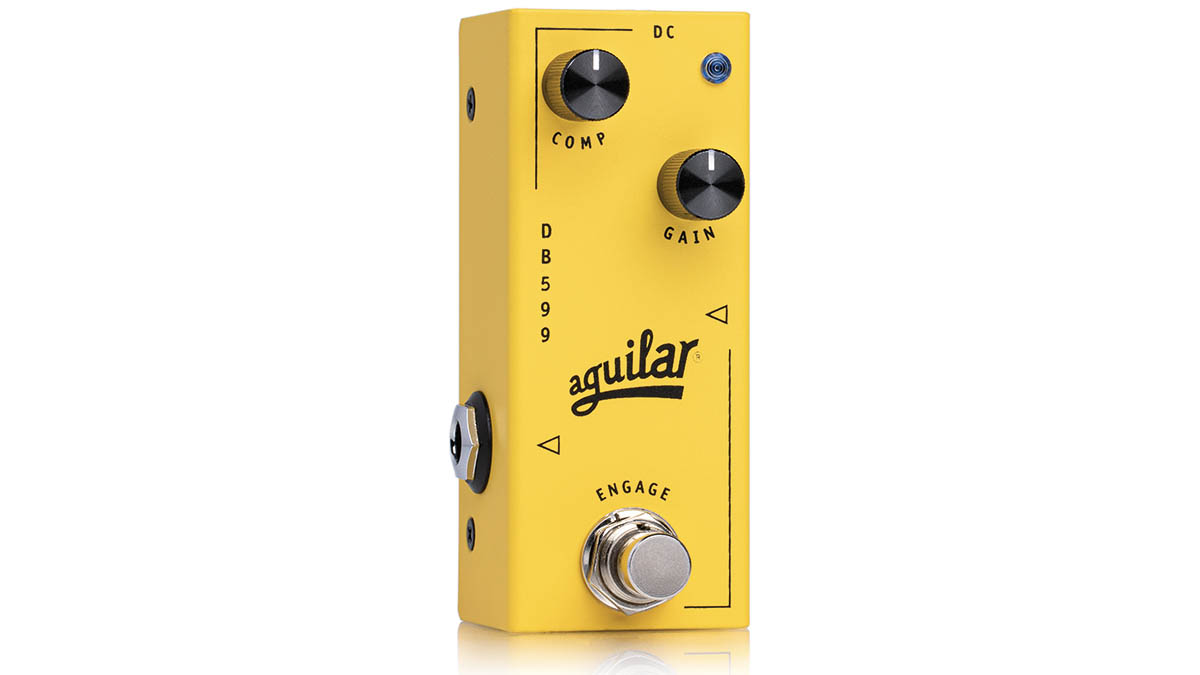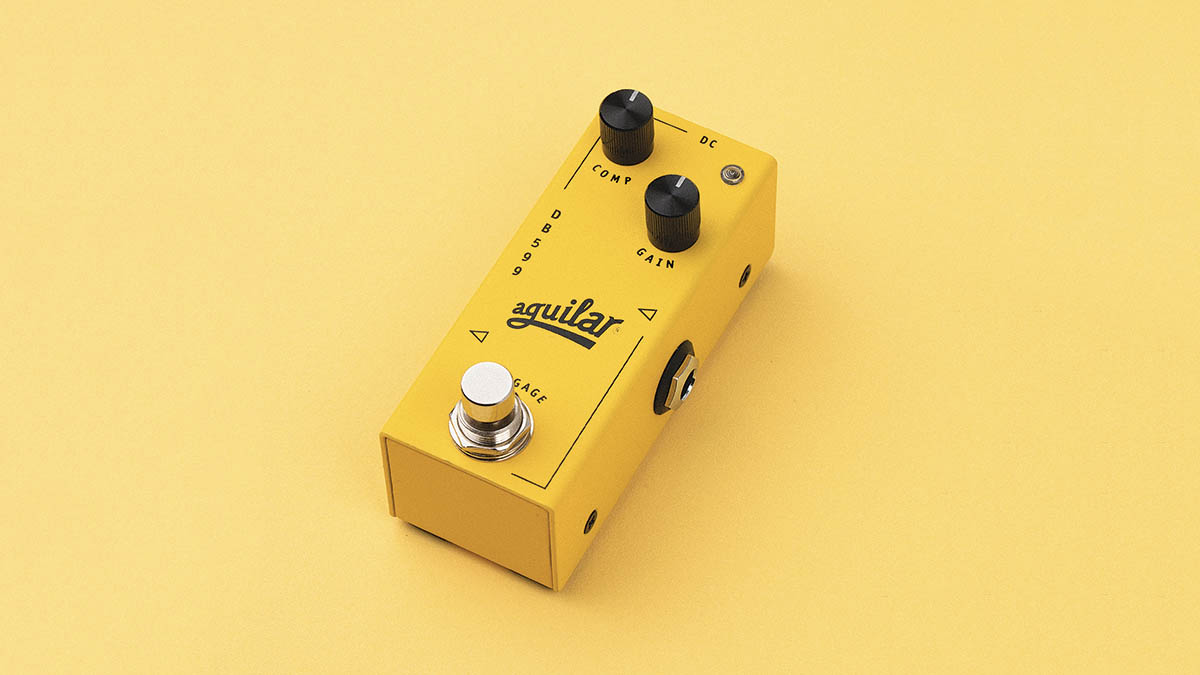Guitar World Verdict
A well-sized, sensibly designed and musical compressor.
Pros
- +
Simple, effective.
- +
Compact.
Cons
- -
Not cheap.
- -
Limited controls restrict its flexibility.
You can trust Guitar World
Hot on the heels of Aguilar’s DB925 Bass Preamp comes the DB599 Bass Compressor pedal, following the same micro format and occupying a reduced footprint on your pedalboard compared to standard pedal dimensions.
Many of you will be familiar with Aguilar’s previous foray into compression, the TLC Compressor, which presented the player with four controls with which to sculpt and tailor their bass signal.
The DB599 simplifies the process somewhat by offering Compression and Gain controls, while utilizing pre-selected compression ratios and attack/release parameters. In theory, this should make the player’s job simpler, with only two controls to contend with.
The pedal’s rugged metal chassis should certainly withstand life on the road, and the controls themselves are solidly fitted and turn smoothly, as you would expect of an Aguilar product.
The stomp switch is equally solid and operates without any obvious issues. With input/output connections located on the sides of the chassis and the adaptor connection at the top of the pedal, the DB599 shouldn’t pose any problems when fitted onto a pedalboard.

In operation, and with no compression applied, the Gain control can be adjusted so that the pedal acts as a volume control, should you need a signal boost. As with all Aguilar products, the company creates them to be ‘musical’ rather than offering parameter extremes – and this philosophy is highlighted here.
With the Gain control turned down, increasing the Compression control results in a volume reduction; increasing the Gain control brings the volume back to the level you require, but with a smoother signal and fewer transients.
All the latest guitar news, interviews, lessons, reviews, deals and more, direct to your inbox!
With a little experimentation, it will become apparent that small adjustments are best when you’re exploring this pedal’s sonic nuances. Scanning the QR code on the box will display the parameters for a variety of settings.
As with any compression effect, your instrument, playing style, string freshness, technique and attack will affect how it reacts. For that reason, any settings that work at home, in rehearsal or in a recording context may change significantly if you decide to call the DB599 into action in a live performance – so be prepared to make adjustments on the fly.
This is where this pedal comes into its own, due to its simplicity. I would prefer more control and interaction over the presets, but on the flipside, there is less likelihood of becoming confused with the settings – and you can get on with your playing.
I used it to smooth out fingerstyle passages with considerable peaks, slap sections that varied in volume, and to provide a more resonant, percussive-sounding thump or for tighter articulation when using a pick
I found the DB599 intuitive and simple to operate, and overall, its simplicity is a major selling point. I used it to smooth out fingerstyle passages with considerable peaks, slap sections that varied in volume, and to provide a more resonant, percussive-sounding thump or for tighter articulation when using a pick. In all instances, I found the DB599 delivered the goods.
As Aguilar’s full-sized studio-quality TLC compressor is also available, I suggest that the DB599 be treated as a more ‘plug and play’ option that doesn’t require constant tweaking to find the desired effect, and which also takes up minimal space on a pedalboard. If you’re willing to pay for a suitable solution to those two requirements, look no further.
Specs
- PRICE: $169/£199
- MADE IN: USA
- FEATURES: Compression, gain
- DIMENSIONS: 3.66” x 1.77” x 1.96”
- POWER: 9 volt DC
- CONTACT: Aguilar

